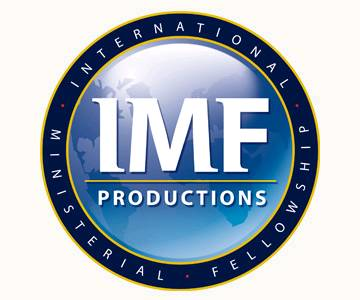(单词翻译:单击)
Change is coming to the international monetary system. Weary of broken promises to give them a say in the running of the International Monetary Fund that matches their economic heft, the so-called Brics countries have set up their own development bank. Brazil, Russia, India and China also plan to pool foreign exchange reserves and avoid having to rely on the IMF during crises.
国际货币体系正在发生变化。金砖国家(Brics)成立了自己的开发银行,因为国际货币基金组织(IMF)承诺赋予它们与各自经济实力相称的话语权,参与IMF的运营,却一次次食言。巴西、俄罗斯、印度和中国还计划建立外汇储备池,避免在发生危机的时候被迫依赖IMF。

The eurozone crisis in some ways demonstrated the worth of the old multilateral order. True, the IMF at first went along with a rescue programme premised on fanciful assumptions at the behest of the EU and the European Central Bank. But the Fund subsequently stiffened its spine. It insisted on recognising the full extent of the debt and banking problems in Greece and Cyprus, and demanded a realistic assessment of reforms needed in other troubled economies. Left to themselves, Europeans might have stuck to their delusions.
欧元区危机在某些方面证明了多边主义旧秩序的价值。诚然,IMF一开始在欧盟(EU)和欧洲央行(ECB)的要求下,同意了一项建立在空想假设前提下的纾困计划。但IMF后来态度转强硬。它坚持要求充分认识希腊和塞浦路斯的债务和银行业问题的严重程度,并要求对其他困难经济体所必需的改革进行现实的评估。如果没有IMF的介入,欧洲国家或许会坚持相信自己的错觉。
Such actions demonstrate the IMF’s worth. But its legitimacy remains in doubt. Emerging markets harbour a strong suspicion that if they found themselves in trouble, they would receive smaller loans under more stringent conditions. When it comes to mediating currency wars they see an institution that is impatient when developing countries seek competitive advantage in a weak currency – but which readily acquiesces when big western economies embark on massive programmes of monetary easing that might also be seen as a form of competitive devaluation.
这些举动证明了IMF的价值,但其合法性仍然存疑。新兴市场严重怀疑,如果它们陷入麻烦,从IMF获得的贷款会更少,条款也会更苛刻。在IMF调停货币战时,新兴市场看到的情况是,当发展中国家试图通过货币贬值寻求竞争优势时,IMF的反应很不耐烦,但当西方大型经济体推出也可被视为某种竞争性贬值的大规模货币宽松计划时,IMF却轻易默许。
The IMF’s real strength is its ability to assess countries’ macroeconomic and financial policies and evaluate what they mean for the world economy. The Fund should make these assessments its main job. It could do them better if it was no longer doing the frontline work of rescuing troubled economies. Combining the two functions makes it needlessly vulnerable to accusations of favouritism.
IMF的真实强项在于其评估各国宏观经济政策和金融政策的能力,以及评估这些政策对全球经济影响的能力。IMF应该将评估作为自己的主业。如果它不再亲身上阵、参与问题经济体的纾困工作,那么它在评估工作上会做得更好。集两个职能于一身,使得IMF毫无必要地成为易受偏袒指责的靶子。
Lending with conditions could be managed by regional insurance pools and backed up by IMF money if needed. At a time of crisis, the IMF would be called upon to develop a realistic plan for a country to rectify its policies. The country would simultaneously negotiate with the relevant regional monetary fund for a loan programme. Any watering down of the IMF’s recommendations would make it obvious how much the country in trouble was being subsidised by others in its regional group. Such decisions would be political, as they always are. But other countries in the group would be fully informed about the costs of bailing out one of their own.
附加条件的贷款可以由地区保险池来处理,如有必要的话,IMF可给予支援。在发生危机的时候,可以让IMF出面制定一个实际可行的方案,供一国修正政策时借鉴。这个国家可同时与相关的地区货币基金谈判,得出一个贷款方案。只要对IMF的建议打任何折扣,问题国家从本地区集团的其他成员国接受了多少补贴就会显露无遗。这样的决策将是政治性的,始终如此。但同一集团中的其他国家能充分知晓它们对“自己人”纾困的成本是多少。
Could a dominant country in a regional pool sabotage a smaller country’s borrowing for petty political reasons? Yes, but the option of an IMF loan takes the edge off large countries’ threats to run the regional insurance pools however the fancy takes them.
在地区保险池中占有主导地位的国家,是否有可能因卑鄙的政治原因破坏较小国家的借款计划?有可能,但因为IMF也可以提供贷款,使得大国随心所欲操纵地区保险池的威胁降低了。
Some western policy makers have argued that allowing regional funds to compete with the IMF could trigger a race to the bottom, in which countries play different would-be rescuers off against each other in an attempt to negotiate less onerous conditions. This is a red herring. The IMF and the regional funds would have the same incentives to maintain their credibility and protect their investment. They have strong reasons to aim for good economic outcomes.
一些西方政策制定者一直主张,允许地区基金与IMF竞争,可能引发逐底竞争(race to the bottom),国家可能会让潜在的纾困者“鹤蚌相争”,以期为自己争取到不那么苛刻的条款。这是伪命题。IMF和地区基金拥有同样的动机去维持自己的可信度、保护自己的投资。它们有充分理由致力于实现良好的经济效益。
Rather than whinge about China’s plans to set up competing institutions, the US and other advanced economies ought to take quicker action to reform the governance of the ones they dominate. Co-operation is not all it is cracked up to be. The IMF has long advocated the benefits of greater competition and market discipline in place of the cosy status quo. Perhaps the IMF itself, and the governance system for global finance, would be better served by being subject to some of both.
与其对中国计划成立与IMF针锋相对的组织表示不满,美国和其他发达经济体应该更迅速地采取行动,改革它们所主导的那些组织的治理。合作并不像人们说的那样好。IMF长期以来一直宣扬加大竞争、加强市场纪律以打破舒服现状的好处。或许施行这两项原则对IMF本身、以及国际金融治理体系也有好处。


